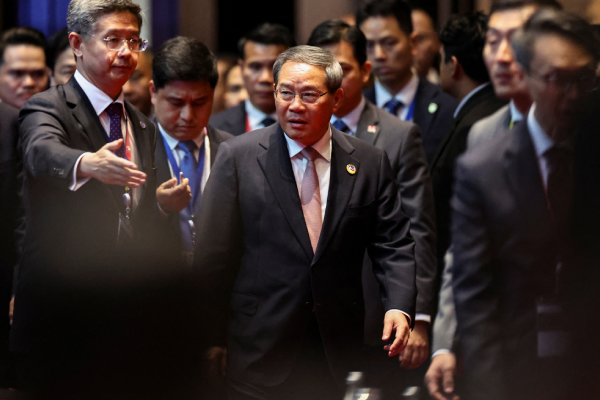China and Vietnam are set to sign new accords, including pacts to improve railway connections and agricultural commerce.
Seamless rail ties represent growing trust between the two countries and would boost commerce and supply chains, as an increasing number of Chinese enterprises shift export-oriented activities to Vietnam despite trade tensions between China and the United States.
The accords, which one source claimed included payment systems and customs procedures, could strengthen economic connections between the two Communist-ruled neighbors following a series of high-level summits and cooperation agreements struck in recent months.
Mistrust between the two neighbours, which fought a brief border war in the late 1970s and often still clash over boundaries in the South China Sea, has long hampered progress on rail links, but in recent months economic considerations appear to have prevailed over security concerns on the land border.
Both countries have repeatedly showed interest in boosting rail links, but have not yet announced concrete plans and estimated costs to upgrade the connections.
The main route currently relies on tracks connecting Kunming in the southern Chinese province of Yunnan to Hanoi and the Vietnamese port city of Haiphong.
Read Also
The railway was built by the French during their colonisation of Vietnam more than a century ago and is still in use in Vietnam, whereas China has replaced its route with high-speed connections.
That makes the tracks incompatible, forcing passengers and goods to change train at the border, in a hurdle for the booming commercial flows between the two countries which amounted to $148.2 billion in the first three quarters of this year, a 21% increase from the same period last year.
In August, during Vietnamese Party chief and President To Lam’s trip to Beijing, China and Vietnam signed documents for planning and feasibility studies for standardized railway routes, following initial agreements in December during President Xi Jinping’s state visit to Hanoi.
On Sunday, the two countries are expected to sign a new agreement on survey activities.
In addition to the Kunming-Haiphong train route, the two countries intend to upgrade another connection from China’s Guangxi province to Hanoi, as well as a prospective new one between Shenzhen and Haiphong.
It is unclear how many deals will be signed, but sources say at least a dozen are being considered.
According to a draft timetable from Vietnam’s foreign ministry, Chinese Premier Li Qiang will visit Lam on Saturday and Vietnam’s Prime Minister Pham Minh Chinh on Sunday morning before attending the “signing ceremony of cooperation documents.”





